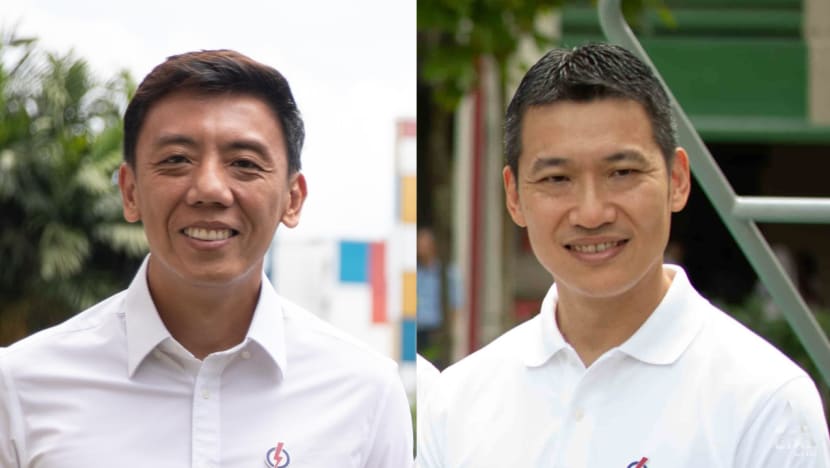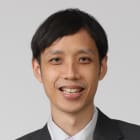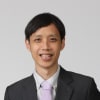Commentary: What makes civil servants and military officers ministerial material?
The appointments of Jeffrey Siow and David Neo as acting ministers have drawn attention. But direct appointments to Cabinet, though uncommon, do have precedents, says Terence Ho of the Singapore University of Social Sciences.


This audio is generated by an AI tool.
SINGAPORE: The swearing-in of Prime Minister Lawrence Wong and his new Cabinet on Friday (May 23) marked the start of a new chapter in Singapore’s political transition.
Among the appointments, the elevation of political newcomers Jeffrey Siow and David Neo to acting minister positions has drawn particular attention. They will helm the transport and culture, community and youth ministries, respectively.
Direct appointments to Cabinet, though uncommon, do have precedents. Mr Chan Chun Sing was appointed acting minister for community development, youth and sports after the 2011 General Election, while Mr Ng Chee Meng and Mr Ong Ye Kung were made acting ministers of education following GE2015. Mr Heng Swee Keat and Dr Tan See Leng even became full Cabinet ministers on their entry into politics.
The Cabinet appointments this round reflect the considerable trust Mr Wong and the People’s Action Party (PAP) leadership place in Mr Siow and Mr Neo. The former was second permanent secretary at the Manpower Ministry and Ministry of Trade and Industry before entering politics, while the latter was chief of army until he stepped down in March.
Notably, their previous jobs have direct relevance to their new portfolios: Mr Siow was previously director of land transport at the Transport Ministry, while Mr Neo was formerly a director at the Pioneer Generation Office, which worked closely with community and grassroots organisations. Their experience ought to help the new acting ministers hit the ground running.
WHY CIVIL SERVANTS AND MILITARY GENERALS
The civil service and armed forces have long been a fertile recruitment ground for political leaders. Former permanent secretaries who subsequently joined the Cabinet include Mr Howe Yoon Chong in the late 1970s, and more recently, Mr Khaw Boon Wan, Mr Heng and Mr Chee Hong Tat. Among the early cohorts of SAF scholars were Mr Lee Hsien Loong, Mr George Yeo and Mr Teo Chee Hean. Many other military officers have since followed in their footsteps.
Of the seven first-time Members of Parliament appointed to political office, six are from the public sector including the Singapore Armed Forces (SAF). This raises the question: How useful is prior public sector experience to a political leader? Conversely, could there be disadvantages in drawing political leaders from the public sector?
Civil servants, especially those who have held senior positions, would certainly be au fait with policy design and implementation. They would be familiar with policy principles and considerations, and would know how to work the government machinery necessary for successful policy implementation. They would have also proven themselves in running public agencies or departments and managing public funds.
By the time they reach the senior echelons of the SAF, military commanders would have acquired considerable experience in leading people and organisations, as well as in planning logistics and operations. These are all valuable skillsets for a political leader.
Capability and experience aside, public officers may gain the trust of incumbent political leaders in the course of their work. Political leaders spend much of their time working with public officers, so it is natural for them to turn to trusted officers when identifying fresh talent for politics.
In particular, the role of principal private secretary (PPS) – a senior aide to the prime minister, deputy prime minister or minister mentor - has turned out to be a political apprenticeship for several Cabinet ministers. Mr Wong, Mr Ong and Mr Siow previously served as Mr Lee Hsien Loong’s PPS, while Mr Chee was PPS to Mr Lee Kuan Yew.
IS THERE RISK OF GROUPTHINK?
Critics argue that having a large number of former public officers in Cabinet could breed insular thinking, as they may be boxed in by existing policy paradigms. Those who are sceptical that SAF generals make good civilian leaders have suggested that military-style command and control does not work well in other settings.
However, stereotypes seldom do justice to individuals. Much depends on a leader’s personal disposition, including independence of mind and adaptability to different organisational contexts.
Former military men have made significant contributions both in the private sector as well as in politics: Names that come to mind include former CapitaLand CEO Liew Mun Leong and recently retired Mr Teo. Likewise, former ministers Mr Khaw and Mr Lim Swee Say – known for their policy innovations and enterprising streak – came from public sector backgrounds.
Notwithstanding, there is certainly a need for a diversity of experience in the Cabinet. Those from the private sector can bring different perspectives and expertise to complement the skillsets of their colleagues from the public sector. Doctors, lawyers and former corporate leaders have held key ministerial portfolios in recent years. Serving as grassroots volunteers or on the boards of public agencies are some ways in which private sector candidates have come to the attention of the political leadership and gained their trust.
WHAT MAKES A LEADER EFFECTIVE
The most effective political leaders, in my view, are those who have vision, imagination and conviction. Having strong convictions means they are not easily swayed from the course they have set; yet they are open-minded enough to take in feedback, whether from civil servants or members of the public, and can be persuaded to adjust their approach where needed.
These leaders do not merely follow public opinion; they have their ears close to the ground to understand citizens’ concerns and seek ways to address them.
They have to be good communicators, to rally their colleagues and the public around their vision of change – to inspire, motivate and bring people along. Successful change requires the mobilising of people and the marshalling of resources, and there are often roadblocks to overcome along the way.
Newly minted political leaders from the public sector should leverage their prior experience and knowledge, while at the same time have the openness and suppleness of mind to be able to transcend existing policy paradigms. This is possible if they have the humility to take in suggestions, the courage to act on their convictions and the perseverance to push on despite obstacles. If so, they will be deserving of the trust that Singaporeans have placed in them.
Terence Ho is Associate Professor (Practice) at the Institute for Adult Learning, Singapore University of Social Sciences. He is the author of Future-Ready Governance: Perspectives on Singapore and the World (2024).


















